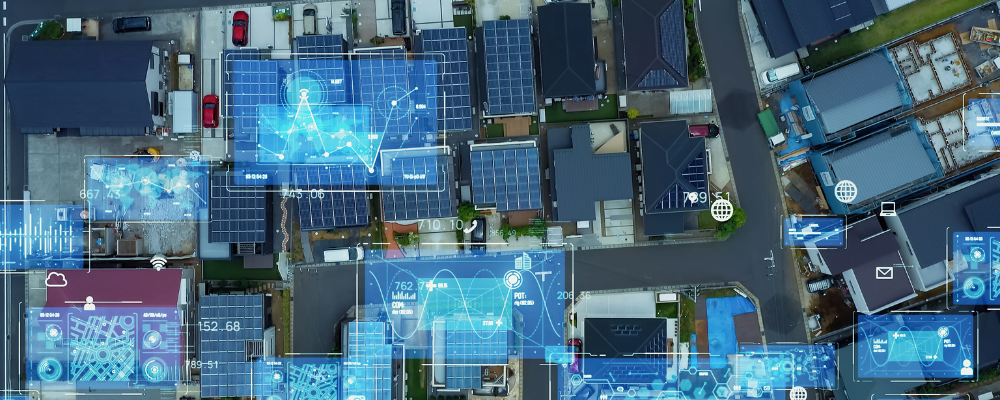The real estate industry is undergoing an exciting transformation, driven by advancements in artificial intelligence (AI). Traditionally reliant on manual processes and human expertise, the sector is now embracing AI technologies that are set to revolutionize various aspects of real estate operations. From property management to market analysis, AI is bringing unprecedented efficiency, accuracy, and innovation, fundamentally reshaping the industry.
The potential impact of AI in real estate is vast, with projections suggesting it could generate between $110 billion and $180 billion in value. Even in its early stages, AI is already proving its worth by enhancing property management, refining market analysis, improving customer experiences, and streamlining transaction processes. These advancements not only boost operational efficiency but also create new opportunities for value creation and competitive advantage.
Incorporating AI into real estate operations offers significant benefits for property owners, investors, and tenants alike. AI-powered tools and systems are transforming traditional practices, making them more efficient and effective. By leveraging AI, the real estate industry can unlock new levels of performance and innovation, paving the way for a smarter, more dynamic future.
The Impact of AI in Real Estate
Property Management
Proptech is revolutionizing the real estate industry by integrating artificial intelligence to streamline and enhance various operations. This innovative approach leverages AI to automate routine tasks such as rent collection, maintenance requests, and tenant communications, boosting efficiency and reducing administrative burdens. Additionally, proptech solutions provide advanced data analytics, offering property managers valuable insights for optimizing resource allocation and improving decision-making processes.
Smart building technologies, a key component of proptech, enhance energy management and sustainability efforts, leading to cost savings and reduced environmental impact. These technologies employ AI-driven systems to monitor and control energy usage in real time, optimizing heating, cooling, and lighting based on occupancy and usage patterns. For example, smart thermostats and lighting systems can adjust settings automatically to conserve energy when spaces are unoccupied.
Additionally, AI is redefining property management through the use of predictive maintenance technologies, which analyze data from building systems to preemptively address potential issues, thereby averting costly repairs and reducing downtime. For example, AI-driven systems can monitor HVAC operations to predict maintenance needs, optimizing energy use and extending equipment life. Beyond maintenance, AI automates routine tasks like maintenance requests and rent collection, freeing up managers to concentrate on strategic initiatives.
Market Analysis and Valuation
AI transforms property valuation and market analysis by leveraging vast data sets to provide accurate and timely property assessments. Through generative AI, real estate professionals and investors can automate due diligence by processing historical data, market conditions, and trends. This provides comprehensive evaluations in competitive markets. For investors, AI offers multifaceted analysis by comparing properties for sale to identify high-potential assets, saving time and minimizing human error and bias. Additionally, AI’s ability to track and analyze location trends and economic indicators empowers investors with proactive decision-making tools, enhancing their investment strategies and maximizing returns.
Customer Experience
AI-powered virtual tours and augmented reality are revolutionizing property viewing experiences, offering prospective tenants and buyers a more immersive and convenient way to explore properties. Additionally, chatbots provide immediate, personalized responses to tenant inquiries, efficiently handling customer service functions and significantly improving tenant satisfaction and retention rates. Tenants can also use AI-powered platforms to submit rent payments and maintenance requests, which are automatically routed and tracked, ensuring prompt resolution. This streamlined process not only enhances tenant satisfaction but also frees up property managers to focus on other important tasks.
Transaction Processes
AI revolutionizes real estate transactions by automating daily processes. Specifically, AI systems handle contract management by generating, reviewing, and monitoring contracts to ensure compliance and reduce manual errors. Additionally, AI fraud detection systems can reduce losses and speed up the review process, significantly enhancing transaction security. By automating these tasks, AI allows professionals to focus more on building relationships and making strategic decisions.
Targeted Marketing and Sales
AI algorithms analyze consumer behavior and preferences, enabling personalized marketing campaigns that target specific demographics with tailored content. For example, AI can identify potential buyers based on their online activity and recommend properties that match their preferences. This targeted approach not only increases the likelihood of sales but also reduces marketing costs by focusing efforts on the most promising leads.
Challenges of AI Integration in Real Estate
Despite the benefits, integrating AI into real estate comes with significant challenges. One major concern is data privacy and security. The vast amount of data collected and analyzed by AI systems must be safeguarded against breaches and misuse. Ensuring compliance with data protection regulations is crucial to maintaining trust and protecting sensitive information.
Another challenge is the substantial investment required for AI implementation. The real estate industry needs to invest in advanced technologies, training, and change management to fully leverage AI’s potential. This can be a barrier for smaller firms with limited resources. Additionally, the need for continuous updates and maintenance of AI systems adds to long-term costs.
AI integration also requires a cultural shift within organizations. Resistance to change and a lack of understanding about AI technologies can hinder adoption. Ensuring that all stakeholders are educated about the benefits and limitations of AI is essential for smooth integration. Additionally, ethical considerations such as potential biases in algorithms and the impact on employment must be carefully managed to avoid unintended negative consequences.
Embracing AI for Growth
The transformative potential of AI in real estate is immense, and its impact will only grow stronger. It’s clear that AI is driving the real estate industry towards a more innovative future, and adopting these technologies can lead to improved efficiency and profitability. Real estate firms will want to proactively explore and invest in AI technologies for a competitive edge and sustained growth. To learn more, contact Ryan Paul or Jennifer French, Partners on PBMares’ Construction & Real Estate team.
Stay tuned for upcoming information regarding potential issues regarding AI.






